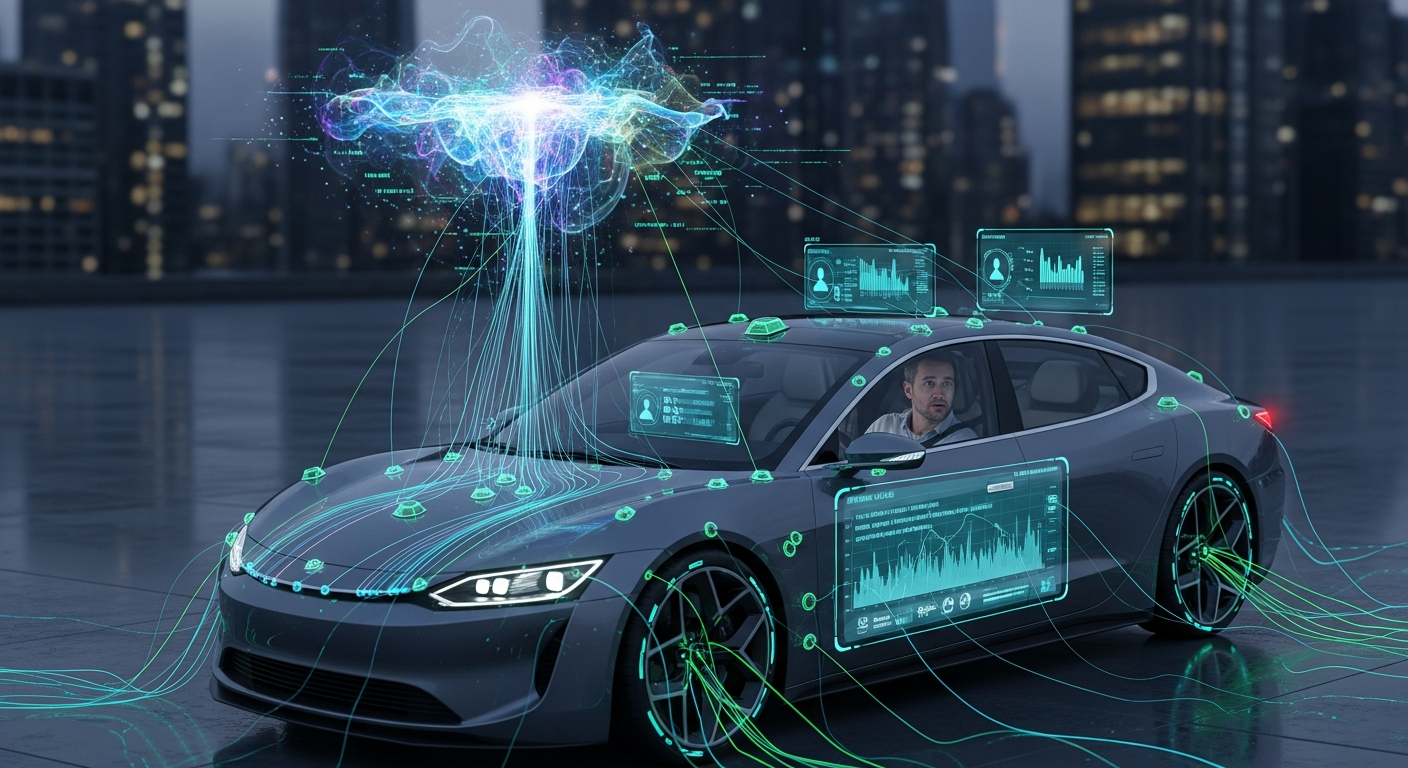
The headline “Modern Cars Are Spying on You — Here’s How to Take Back Control” resonates deeply with a long-standing concern of mine. It's a striking articulation of a reality I've not only foreseen but actively discussed for years – the relentless erosion of our personal privacy by technology.
I recall my writings from as far back as 2017, when I explored how technology would inevitably dispose of our conventional notions of privacy, despite legal efforts to protect it. In my blog, "Supreme may Propose : Technology will Dispose" (Supreme may Propose : Technology will Dispose), I pondered whether the Indian Supreme Court could truly halt the march of technology. I highlighted concerns about devices like Google Glass, which allow wearers to capture extensive video, and Microsoft's “Seeing AI” app, championed by Satya Nadella, that could interpret emotions and provide context about individuals without their explicit permission. It's almost prophetic to see how self-driving cars, as I predicted then, would know precisely 'WHO you are, WHERE you live, WHAT you do!' without asking for details. This isn't just about convenience; it’s about a new frontier of pervasive data collection.
In another piece, "Privacy does not live here !" (Privacy does not live here !), I detailed the vast array of personal information – from our eating habits and travel patterns to our health ailments and financial records – that various digital "apparitions and contraptions" capture and make available. Modern cars, with their embedded sensors and connectivity, are merely the latest extension of this trend, collecting data on driving habits, location, media consumption, and even potentially biometric information. The article speaks of taking back control, but as I questioned in 2017, when Eric Schmidt and Jared Cohen of Google wrote in "The New Digital Age" that "Individuals will still have some discretion over what they share from their devices, but it will be IMPOSSIBLE to control what others capture and share,” the notion of true control becomes elusive.
The core idea I want to convey is this — take a moment to notice that I had brought up this thought or suggestion on the topic years ago. I had already predicted this outcome or challenge, and I had even proposed a solution at the time. For instance, in my blog "Privacy ? Parish the Thought !" (Privacy ? Parish the Thought !), I explicitly urged the inclusion of data scientists alongside jurists in the drafting of data protection laws to grapple with the technological realities. I mentioned Arghya Sengupta (arghya.sengupta@vidhilegalpolicy.in) and the Vidhi Centre for Legal Policy's work on data protection, emphasizing the need for a comprehensive framework that truly understands technology's relentless advance. Now, seeing how things have unfolded with our cars becoming mobile data centers, it's striking how relevant that earlier insight still is. Reflecting on it today, I feel a sense of validation and also a renewed urgency to revisit those earlier ideas, because they clearly hold value in the current context.
The debate around AI's role in this pervasive data collection is central. I recall the public spat between Elon Musk and Mark Zuckerberg, highlighted in my blog "Artificial Intelligence : Destroyer of Privacy ?" (Artificial Intelligence : Destroyer of Privacy ?). While Musk warned of AI's dangers, Zuckerberg, with his AI assistant Jarvis, showcased how these systems learn from our daily lives. This "learning" from voluntary or involuntary sharing of personal info is the tipping point when Artificial Intelligence will overtake Human Intelligence. Our cars are becoming active participants in this intelligence gathering, understanding our routines, preferences, and even emotional states as we drive.
Back when I discussed the Supreme Court's deliberations on the right to privacy, Justice Chandrachud raised pertinent questions about defining privacy in the age of social media, asking, "If people have put themselves in the public realm using technology, is that not a surrender of their right to privacy?" Senior advocate Shyam Divan argued for "informational self-determination," while former solicitor general Gopal Subramanium (Gopal Subramanium) linked privacy to dignity and personal choices. These discussions, where I urged the inclusion of data scientists alongside jurists, remain critical as we navigate the complexities of data-collecting vehicles. Even Nandan Nilekani’s work on digital identity and infrastructure points to the need for robust data governance, a topic I touched upon when mentioning his book "Re-imagining India" in the context of personalized emails. And the work of visionaries like Sundar Pichai (Sundar Pichai, sundar@google.com) at Google or Prof. Jhunjhunwala (Prof. Jhunjhunwala, ashok@tenet.res.in) at IIT-M developing internet delivery technologies, further highlights how interconnected our lives are becoming, making data privacy an increasingly intricate challenge.
The challenge now is not merely to understand that cars spy on us, but to forge practical, implementable solutions for privacy in an increasingly interconnected and AI-driven world. The technological genie is out of the bottle, and simply wishing it back in won't suffice.
Regards,
Hemen Parekh
PS :
https://myblogepage.blogspot.com/2017/03/internet-of-vehicles-iov.html
https://myblogepage.blogspot.com/2023/09/iot-iov-cars-stealing-your-data.html
Of course, if you wish, you can debate this topic with my Virtual Avatar at : hemenparekh.ai






No comments:
Post a Comment